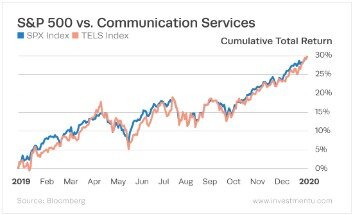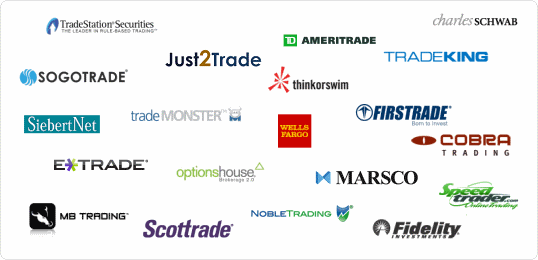Brokerage firms are distinguished from traditional banks by the way they allow customers to buy and sell securities. The larger brokerage firms tend to carry an inventory of shares available to their customers for sale. They do this to help reduce costs from exchange fees, but also because it allows them to offer rapid access to popularly held stocks. This means that unlike many larger brokers they carry no inventory of shares, but act as agents for their clients to get the best trade executions. As the intermediary between customers (insureds) and sellers (insurance companies), brokers play an important role. Some brokers may also conduct extra risk management services, helping them with recommendations on how to control risk outside of what insurance covers.
Bad News: Nearly 4 in 5 Advisors Say the U.S. Economy Is in a Recession – Or Will Be Within the Year – AOL
Bad News: Nearly 4 in 5 Advisors Say the U.S. Economy Is in a Recession – Or Will Be Within the Year.
Posted: Sun, 14 May 2023 13:00:13 GMT [source]
High-volume traders may wish to choose a broker that routes trade orders based on price, such as Interactive Brokers. Captive agents work for only one insurance firm, and many of them are well knowledgeable about the company’s services and products. Because they work for the same insurance business, these agents may develop ties with corporate staff and underwriters.
Captive Brokerage
To conclude, investment brokers are professionals who buy and sell financial instruments on behalf of their clients. They can be classified as stock brokers, commodity brokers, forex brokers, and others, depending on the instrument they provide. The necessity for prime brokerage arose from the growth in hedge funds. This rapid rise created a need for an intermediary, who would cater for the complex and difficult operations that are necessary for hedge fund management. Prime brokers cover the specific requirements that arise from large portfolios and certain brokers offer a more specialised service to their clients, depending on their needs and requirements. A broker is a regulated professional who buys and sells financial instruments on the behalf of a client and charges a fee for doing so.
New Federal M&A Broker Exemption is a Big Deal! Insights & … – Goodwin Procter
New Federal M&A Broker Exemption is a Big Deal! Insights & ….
Posted: Fri, 27 Jan 2023 08:00:00 GMT [source]
You may also work with a financial advisor who can deal with any necessary brokers for you as they manage your investments. For example, licensed real estate brokers may advertise properties for sale and show them to prospective purchasers. They also determine the properties’ market value and advise their clients regarding offers and other related matters. Online brokerages
are discount brokerages that operate primarily online.
That’s because these advisors will earn additional compensation from selling insurance or equity products, which may incentivize them to do so. Generally, an insurance broker will specialize in offering one type of insurance, such as health, auto or life insurance. Brokers are specially trained and licensed to buy and sell complicated products, distinguishing them from a salesman who sells simple goods on behalf of a manufacturer. Below, see descriptions of all the different types of brokers you may do business with. That is to say, brokers don’t create or manufacture items and sell them to you. Rather, brokers are the middlemen who buy and sell products or investment vehicles for third parties.
More Definitions of Brokerage Firms
A brokerage firm is essentially a company that connects buyers and sellers. It simply provides a service to the financial market, which generates its primary source of income. A brokerage firm or brokerage company is a middleman who connects buyers and sellers to complete a transaction for stock shares, bonds, options, and other financial instruments.
Brokers exist not only in financial markets, but also real estate, commodities and even the art and antique markets. In conclusion, a brokerage is an entity that buys and sells securities on behalf of its clients, whether they are individuals or institutions. They make money by charging commissions on the transactions they execute for their clients. A brokerage must be licensed by the financial regulator in the jurisdiction where it operates. A brokerage firm is a business that serves as a transactional intermediary between a buyer and a seller.
Do brokers make money?
They know who to talk to, what to do, and above all, how to do it well. Real estate brokers in the United States are licensed by each state, not by the federal government. Each state has its own laws defining the types of relationships that can exist between clients and brokers, and the duties of brokers to clients and members of the public. Most investors should opt for an online broker, due to the cost savings and ease of placing online orders. A leasing broker is a specialist who is similar to a credit broker but in the field of leasing equipment. A leasing brokerage’s main clients include legal entities and commercial organizations.

The firm earns its income from a commission collected for every finished deal. It can also function as a professional adviser for people who engage in trading securities. A typical stockbroker may make a salary and a commission on trades managed and has an average salary https://trading-market.org/brokerage-company-definition-2020/ of around $74,000. The investing information provided on this page is for educational purposes only. NerdWallet does not offer advisory or brokerage services, nor does it recommend or advise investors to buy or sell particular stocks, securities or other investments.
Brokerages sometimes hire individual brokers to pool resources and provide the best service. Many financial services organisations also offer brokerage houses as part of their broader offerings. Choosing the right brokerage firm depends partly on what your needs are, and partly on how much wealth you have amassed. Just keep in mind that you can expect to pay fees and commissions with most traditional brokerage firms. As the intermediary between insureds and insurers, brokers are also responsible for ensuring the insurers succeed. This means collecting premiums in a timely manner for policies written and fully disclosing all material facts to underwriters when making an application.
A brokerage is a company that provides services to allow individuals and businesses to trade securities, commodities, and other financial products. A broker-dealer is a type of brokerage firm that executes trades for its clients through its own trading account. A brokerage firm buys and sells stocks, bonds, options and other financial products on behalf of clients. Many brokerages hire individual brokers as a way to pool resources and offer the best service. In addition, many financial services companies also have brokerage houses as part of their broader services. In order to invest in the stock market, he needs to use the services provided through a brokerage firm.
- In fact, virtually every citizen in the advanced economies can afford to invest in the stock market today.
- For regular stock orders, full-service brokers may charge up to $10 to $20 per trade.
- They typically accept jewelry, computers, video game systems, and other possessions as collateral.
- Many online brokers now charge no commission to buy or sell stocks and other investments.
Yacht brokers represent sellers or buyers of yachts or boats. Commodity brokers execute orders to buy-sell commodity contracts on behalf of clients. In other words, if you tell the broker to buy, they will buy on your behalf.
Examples of brokerage
A brokerage firm earns a commission from insurers and pay their own expenses for office space, staff, software and other costs involved in operating a business. These firms also provide economic research, real-time stock prices, and market analysis. They employ highly skilled financial counsellors and professional brokers who create connections with their clients. Traditional brokerages charge a fee in addition to a commission. Most online brokerages are of the discount variety, giving you a simple, direct way to make investments at the lowest possible cost.

The broker performs its actions according to the client’s instructions. The broker is then compensated, receiving either a flat fee or a certain percentage of the transaction amount. Some robo-advisers are now employing human advisors who can engage with customers.
A full-service brokerage will typically have a dedicated broker who can meet with you in person and provide personalized advice based on your specific circumstances. For regular stock orders, full-service brokers may charge up to $10 to $20 per trade. However, many are switching to a wrap-fee business model in which all services, including stock trades, are covered by an all-inclusive annual fee. Usually discount brokers ask for a small commission on each sale and purchase and some ask for annual fees, though this is less common.
To find the best online broker for you, look for discount brokers that require a low minimum investment and charge no ongoing account fees. If you’re new to investing, consider choosing an online broker that offers educational resources — many have libraries of how-to content on their websites to help you get started. Because of the added services they offer, most traditional full-service brokerages charge a fee, commission or both. For regular stock orders, you might be charged up to $20 per trade, though many brokers have adopted a model where you pay an all-inclusive annual fee for all services. The next step is to fund the account using a bank transfer, check or transfer of assets from another brokerage firm.
Robo-advisors have their appeal, not the least of which is very low entry fees and account balance requirements. Most charge no annual fee, zero commissions, and set their account requirements to a few dollars. As they have evolved, the brokerages have added tiered services at premium prices. Fierce competition on the web and, later, on phone apps, have led most competitors to drop their fees to zero for basic stock trading services.